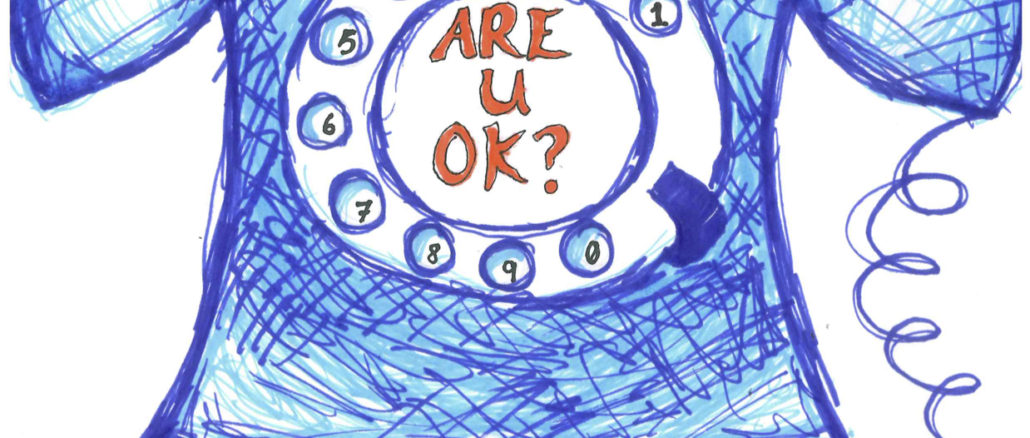
[dropcap]Just[/dropcap] a few weeks ago, DCU saw the establishment of an over the phone counselling service. An exclusive for DCU students, the helpline will operate for three hours, two nights a week – every Tuesday and Thursday.
Some 16 volunteers will be there to listen to the various worries students may have. This is only a pilot scheme and may not be available next year, as it is set up by the DCU Counselling and Personal Development Service in conjunction with Third Age and relies solely on the students’ interest.
However, which is the better option to choose for somebody who feels like they may need to talk to someone about their mental health? Over the phone counselling is more anonymous for those who maybe do not have the confidence to sit in front of a stranger and discuss their issues.
It is also more readily available, as help is only a phone call away in times of stress, when an appointment with a counsellor is too long a wait. Jigsaw, the Irish charity which works with young people and their mental health, provides Samaritan’s, Childline and Teenline numbers on their website for those who need to talk to someone right now.
Over the phone counsellors are a great help when there is an issue and sometimes, with mental health, moods may change unexpectedly and therapist appointments may not suit.
Alternatively, there is the traditional route of going to see a doctor, or a counsellor. DCU offer a free counselling service, so this takes away from the pressures of expensive doctors which many people cannot afford. Unlike a phone counselling service, face-to-face counsellors usually keep track of appointments and psychotherapists prescribe medicines and different types of treatment for complex mental health issues.
Although over the phone counselling may be a form of temporary and emergency help on dark nights, face to face counselling is perhaps a long term solution for those struggling to cope.
Cody Byrne, DCU’s Welfare Officer, noted how it is “a service that students may access from the comforts of their own home.”
“If you’re feeling consistently low, the willpower to access services requires getting up, being presentable, walking to the service. It is much more engaging.”
Byrne also noted how it will have different benefits to different people: “You’re lacking that person-to-person interaction which could prove more beneficial for certain people. As far as I’m concerned, it is still beneficial.”
“I want to take the time to really emphasise just how outstanding our Counselling and Personal Development Services, under the Student Support and Development (SS&D) framework really is. They’re very innovative with their approaches to youth mental health and I could not recommend them enough,” Byron continued.
Although it may not suit everybody, the over the phone counselling service is a start and provides room for expansion. Even though 24-hour hotlines like Samaritan’s and Childline work tirelessly to provide help for those in need, the new hotline is a positive step in the right direction of providing mental health services for all of our students, at all times.



